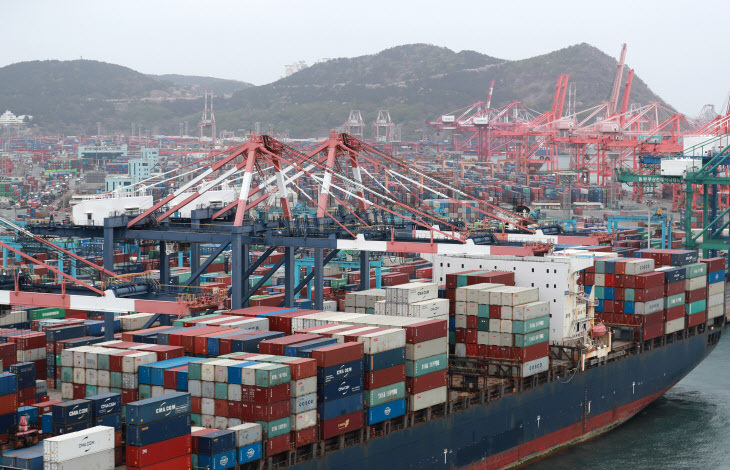'Economy will go down the rabbit hole,' survey finds
By Park Han-naPublished : Jan. 11, 2023 - 15:55

Concerns over deepening economic slowdown and a bleak outlook for global business conditions, experts predicted that this year the country’s economy would fall deep into a dark and chaotic situation as if it "goes down the rabbit hole."
Korea Chamber of Commerce and Industry summarized the opinions of some 85 economics and management experts including university professors as "falling down the rabbit hole."
The KCCI survey respondents said an unprecedented economic environment was unfolding in Asia’s fourth-largest economy this year, in which conventional business strategies do not work.
This includes inflation at levels not seen for decades, an unprecedented period of long-term low growth and a rapidly changing export paradigm.
The results of the survey conducted by the KCCI, the country’s largest lobby group, on economic keywords and business environment outlook for 2023 showed that 76.2 percent of respondents said this year was the first in which there was a forecast of low economic growth without any prospect of it recovering.
The group of experts painted a gloomier outlook for 2023 than those forecast by major institutions. They said the economy would grow at around 1.25 percent, while the Bank of Korea and the International Monetary Fund predicted rates of 1.7 percent and 2.0 percent.
The largest economic risks that the country faces are high interest rates, followed by rising inflation and raw material prices, slow exports, and sluggish domestic consumption.
They also showed concerns over the weakening fiscal health of the country.
“Concerns have been mounting over the economy’s fundamentals including the trade deficit, accumulation of household debt and deterioration of financial soundness,” said Hwang Kyung-in, a researcher at the Korea Institute for Industrial Economics and Trade.
In particular, as major countries have recently been actively implementing industrial and trade policies based on protectionism, such as the US Inflation Reduction Act,
“Korea also needs to expand policy support to increase its economic strength, such as regulatory improvement, support for next-generation technology development, and human resources training,” he said.
As for the area of economic policy that the government should focus on this year, “nurturing future strategic industries” was the most cited (25 percent). Short-term tasks followed by 'funds and financial market stabilization' (23.8 percent), 'economic security and economic diplomacy' (11.9 percent), 'expansion’ (9.5 percent), and 'industry/corporate restructuring' (8.3 percent). It was found that stabilization of capital and financial markets is urgently needed as a priority, and fostering future strategic industries as a long-term task.
Despite the difficult domestic and foreign conditions, the main evaluation was that the Korean economy fared well last year.
“The fact that consumption did not significantly decline as we entered the post-corona era and that we had a well-balanced base for various industries such as semiconductors, automobiles, and petrochemicals are factors that contributed to our relative improvement," Cho Seong-hoon, a professor of economics at Yonsei University, said.
"At the same time, it is necessary to diversify national competitiveness by promoting more diverse industries such as bio, defense, and eco-friendly energy.”
For the country's next growth engine sector, they picked the battery industry is the most promising, followed by biotechnology, mobility and artificial intelligence industries.
This year, the country has a dual task to manage economic indices to stabilize in response to global uncertainties while making substantial results from major revamps in labor, regulation and education, Kang Seok-gu, head of the Korea Chamber of Commerce and Industry's research division.
He stressed the importance of cooperation between the government and the National Assembly. “They should resolve people’s distrust against politics by swiftly carrying out major policies and boost the dynamic of the economy.”

















![[KH Explains] Hyundai's full hybrid edge to pay off amid slow transition to pure EVs](http://res.heraldm.com/phpwas/restmb_idxmake.php?idx=652&simg=/content/image/2024/04/18/20240418050645_0.jpg&u=20240418181020)

![[Today’s K-pop] Zico drops snippet of collaboration with Jennie](http://res.heraldm.com/phpwas/restmb_idxmake.php?idx=642&simg=/content/image/2024/04/18/20240418050702_0.jpg&u=)